 Petzlover
Petzlover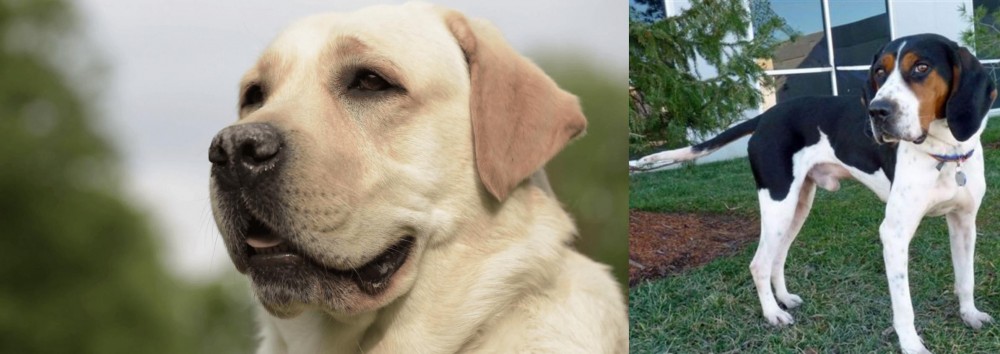 Labrador Retriever is originated from Canada but Treeing Walker Coonhound is originated from United States. Labrador Retriever may grow 7 cm / 2 inches shorter than Treeing Walker Coonhound. Both Labrador Retriever and Treeing Walker Coonhound are having almost same weight. Both Labrador Retriever and Treeing Walker Coonhound has same life span. Labrador Retriever may have more litter size than Treeing Walker Coonhound. Both Labrador Retriever and Treeing Walker Coonhound requires Low Maintenance.
Labrador Retriever is originated from Canada but Treeing Walker Coonhound is originated from United States. Labrador Retriever may grow 7 cm / 2 inches shorter than Treeing Walker Coonhound. Both Labrador Retriever and Treeing Walker Coonhound are having almost same weight. Both Labrador Retriever and Treeing Walker Coonhound has same life span. Labrador Retriever may have more litter size than Treeing Walker Coonhound. Both Labrador Retriever and Treeing Walker Coonhound requires Low Maintenance.
 The Labrador Retriever has its origin from Newfoundland which is an island.Dorset Eskimos are the people who settled down first in Newfoundland. Newfoundland was discovered in 1494 by the Bristol traders from England. The people in the Newfoundland used Lab to help them during fishing.They were recognized as a kennel club breed in England.
The Labrador Retriever has its origin from Newfoundland which is an island.Dorset Eskimos are the people who settled down first in Newfoundland. Newfoundland was discovered in 1494 by the Bristol traders from England. The people in the Newfoundland used Lab to help them during fishing.They were recognized as a kennel club breed in England.
The Lab has its special talents in fishing, it nicely holds the fish in its mouth and swims well to bring it to the fisherman who was its master. They are also used to hunt game birds and waterfowl.
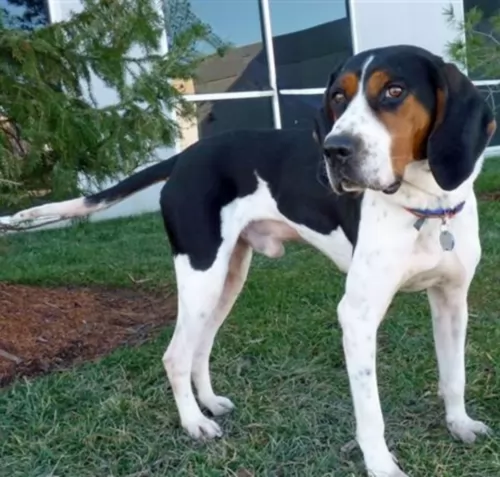 The Treeing Walker Coonhound originated in the United States and comes from English and American Foxhounds.
The Treeing Walker Coonhound originated in the United States and comes from English and American Foxhounds.
The fact that the dog has the word ‘Treeing’ in its names means that it is a hound dog that runs after its prey, sending it running up a tree to escape until the hunter reaches the tree and can shoot the prey.
 Lab is a nice companion and also it helps in doing several works if it is trained. Lab is the America's most popular breed. They help the hunters, works with police and also serves physically challenged people. They are very friendly and it helps people so much by doing many works. They have very good sensitivity and are so affectionate with family members.
Lab is a nice companion and also it helps in doing several works if it is trained. Lab is the America's most popular breed. They help the hunters, works with police and also serves physically challenged people. They are very friendly and it helps people so much by doing many works. They have very good sensitivity and are so affectionate with family members.
They have very high energy level in their young stage. The Lab is a muscular and athletic dog. They are sweet natured and well deserved. Lab needs physical and mental activities regularly as they are very intelligent and energetic. The pure bred Labs have black, chocolate and yellow colours. They are very interested in hunting and roaming. The young Lab should be given training to swim as a child, as they likes it very much. They takes more time to mature hence remaining as teenager for a long time when compared with other breeds.
 The Treeing Walker Coonhound looks very similar to a Beagle, just with much longer legs.
The Treeing Walker Coonhound looks very similar to a Beagle, just with much longer legs.
He stands at between 51 and 69cm in height both male and female and it weighs between 23 and 32kg.
The coat is short and glossy being either bi- or tri-colored – white, tan and black. The body and legs are strong and muscular. He has fairly long, floppy ears. The eyes are brown, intelligent and alert while having quite a gentle expression.
The muzzle is long and narrow. He has large, floppy pendant ears. The eyes are large, brown and have a soft and gentle expression. The tail is set high and is long.
This breed may be an excellent sport dog but he loves spending time quietly with his human family too, making a great family pet.
He is gentle and makes a great playmate for disciplined children. He is intelligent and it will do both owner and dog the world of good to have him trained and socialized.
They’re stubborn dogs, so it simply makes him well behaved, balanced and a pleasure to have around. He will learn commands easily and readily. If you want a good family pet, the Treeing Walker Coonhound is even-tempered and non-aggressive.
 The Lab has a very good adaptability, it will get adjusted with its environment.
The Lab has a very good adaptability, it will get adjusted with its environment.
Lab has a good learning ability and it can learn upto 300 human phrases. They are the 7th most intelligent dog breed.
They are very much interested in playing with kids and are a very good companion for them.
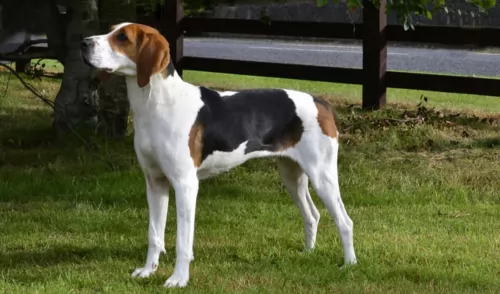 These dogs are loving, loyal confident, social and intelligent, making good companion dogs.
These dogs are loving, loyal confident, social and intelligent, making good companion dogs.
Whether they're outdoors being full of energy and on a hunt, they always give of their best. When they're at home with their human family, they put work behind them and become gentle, mellow pets, loving to just take it easy with their human family.
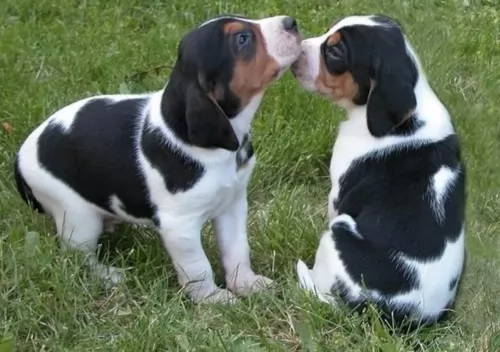 The Treeing Walker Coonhound is looked upon as a healthy dog breed that can be 10 – 13 years of age. Even so, there are diseases that can plague him, and hip dysplasia and ear infections are two that you need to be aware of.
The Treeing Walker Coonhound is looked upon as a healthy dog breed that can be 10 – 13 years of age. Even so, there are diseases that can plague him, and hip dysplasia and ear infections are two that you need to be aware of.
This is when the ball and socket joint isn't formed properly so that there is a grinding action of the joint instead of it sliding smoothly. This common skeletal disease is found in young and old dogs, and it seems more prevalent in larger dog breeds.
Your dog will have pain in the hip joints and even loss of muscle mass in the thigh area. You’ll notice that he becomes less active. Your dog will need to get to the vet so that the vet can suggest treatment for pain and to make him more comfortable.
As a floppy-eared dog, the Treeing Walker Coonhound will scratch at his ears and shake his head if he has an ear infection. With an ear infection inflammation affects the ear canal and can result in deafness. With his floppy ears moisture within the ear can attract bacteria and yeast.
Your pet will need to get to the vet because an ear infection is a painful condition.
 The 2 month old puppy should be given 200 to 250gms of food. 3 month old puppy should be given 250 to 300gms of food and 6 months older should be given 350 to 450gms. The varieties of food which are popular is kibbles, Barf, wet food and Home cooked puppy food.
The 2 month old puppy should be given 200 to 250gms of food. 3 month old puppy should be given 250 to 300gms of food and 6 months older should be given 350 to 450gms. The varieties of food which are popular is kibbles, Barf, wet food and Home cooked puppy food.
Lab can be fed by dry kibbles and also by raw meat or bones. Now-a-days most of the Lab are being fed with kibbles. Kibbles are the dried pellets of dog food that can be bought in pet shop or even online. Raw meat and bones are very much popular food among dog owners in UK.
For good health, Lab should be fed by a diet controlled food. Because overfeeding will lead to overweight of the dog as it causes weakness of bones.
Lab is a very energetic dog, so it should be given some time to play daily. It will be very happy if it is given a fenced ground to play and burn off his natural energy. Also it will be very good for lab if it is given chance to swim weekly once.
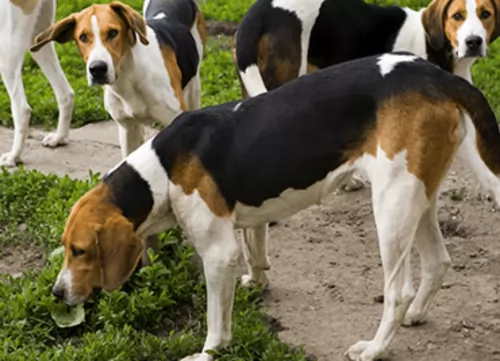 ● A healthy diet with vitamins and minerals as well as essential fatty acids is imperative. To get this in a commercially manufactured dog food, you will need to buy the best, high-quality ones. Some of the inferior brands have all kinds of bad stuff in them such as colorants preservatives and fillers.
● A healthy diet with vitamins and minerals as well as essential fatty acids is imperative. To get this in a commercially manufactured dog food, you will need to buy the best, high-quality ones. Some of the inferior brands have all kinds of bad stuff in them such as colorants preservatives and fillers.
Try and give him some homemade food such as boiled chicken, brown rice and vegetables. Dogs want simplicity in their foods. They can't stomach highly spiced, salted and exotic foods. Plain, wholesome foods keep him healthy and happy.
● It is recommended that you have your dog spayed or neutered. Not only will you prevent an unwanted litter, having them spayed or neutered prevents serious diseases later on. Also, have
your Treeing Walker Coonhound immunized to prevent some of the deadly canine diseases there are.
●These dogs are active, sporty dogs known for their stamina. To keep them lean, athletic and fit, they will require lots of exercise. They love a walk but will require more than a regular walk. Hikes are more what they have in mind. They never tire of hectic ball games, hide and seek and swimming. Because they are active, alert and intelligent dogs, they will need mental stimulation too.
● Your Treeing Walker Coonhound isn't a high maintenance dog because their short coat is easy to keep groomed just by giving him a good brush once or twice a week.
Make the grooming session a time to check him over for ticks and fleas and any unusual lumps on his body. It's a time to look at his eyes to make sure they're clear and bright without any discharge. Check inside his ears for redness and infection.
Trim his nails too. Remember he can't tell you about his teeth, so try and look inside his mouth to see that all is well. A good sign of bad teeth is bad breath. There are professional groomers who are willing to do all these grooming chores for you.